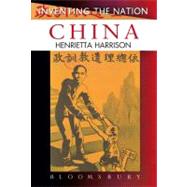China
, by Harrison, Henrietta- ISBN: 9780340741344 | 0340741341
- Cover: Paperback
- Copyright: 8/31/2001
With Chinese nationalism a vital ingredient of both the domestic politics of the People's Republic of China and its international relations, this book explores how China came to be a nation, arguing that from early times China had all the features of a nation state- a common language, culture, and bureaucracy- and that China as it exists today was invented through the construction of a modern state. The book describes the attitudes of eighteenth- and nineteenth-century Chinese towards identity and ethnicity and how these factors affected the structure of the state. The Chinese efforts to build a modern nation state that could resist the Western imperial powers are also documented as are the efforts in the twentieth century to spread nationalism from the cities into rural China. The book argues that China has not been an exception to the process of the invention of nations. Instead, its differences arise from the complexities of the relationship between nationalism and imperialism. Moreover, the role of imperialism was not limited to Western empires: the Manchu Qing empire played quite as significant a role in the construction of the modern Chinese nation state as did imported European ideologies. Henrietta Harrison is Professor of History at Harvard University. With Chinese nationalism a vital ingredient of both the domestic politics of the People's Republic of China and its international relations, this book explores how China came to be a nation, arguing that from early times China had all the features of a nation state- a common language, culture, and bureaucracy- and that China as it exists today was invented through the construction of a modern state. The book describes the attitudes of eighteenth- and nineteenth-century Chinese towards identity and ethnicity and how these factors affected the structure of the state. The Chinese efforts to build a modern nation state that could resist the Western imperial powers are also documented as are the efforts in the twentieth century to spread nationalism from the cities into rural China. The book argues that China has not been an exception to the process of the invention of nations. Instead, its differences arise from the complexities of the relationship between nationalism and imperialism. Moreover, the role of imperialism was not limited to Western empires: the Manchu Qing empire played quite as significant a role in the construction of the modern Chinese nation state as did imported European ideologies. With Chinese nationalism a vital ingredient of both the domestic politics of the People's Republic of China and its international relations, this book explores how China came to be a nation, arguing that from early times China had all the features of a nation state- a common language, culture, and bureaucracy- and that China as it exists today was invented through the construction of a modern state.







